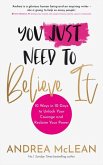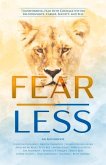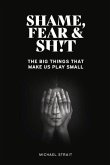Facing the Universal Fear Fear is a shadow that walks beside us, a silent companion to every heartbeat and every breath. It is ancient, primal, and deeply ingrained in the very fabric of what makes us human. No matter who we are-rich or poor, young or old, bold or hesitant-fear is a thread that binds us all together. It may wear different faces, whisper different stories, and inhabit different moments, but it is universal. And yet, fear, for all its power, is often misunderstood. Imagine a child standing at the edge of a diving board, trembling. Her small hands grip the rails as she looks down at the water below. It's only a few feet, but it feels like an abyss to her. Her heart pounds in her chest, her stomach knots, and her mind races with thoughts of what could go wrong. In this moment, fear looms large. Now imagine a soldier standing in a foreign land, surrounded by the echoes of gunfire. His fear isn't of water, but of death, of loss, of not returning home. Then, think of the young woman who is who is about to give a presentation at work. Her fear isn't physical-it's the fear of humiliation, of failure, of being seen as inadequate. Three different situations. Three different fears. And yet, the experience is the same: a pounding heart, a racing mind, a feeling of paralysis. Fear is the great equalizer. It doesn't care about who you are or where you come from; it only cares about its role in your life. Fear has a biological purpose. It is a survival mechanism, born of our ancestors' need to avoid predators and natural threats. When a rustle in the bushes could mean a lurking lion, fear was the alarm system that jolted early humans into action. Even now, this ancient response serves us-keeping us from stepping into oncoming traffic, and reminding us to avoid danger. But the problem is that our modern lives are not filled with lions and deadly predators. The fears we face today are often intangible: the fear of rejection, failure, loneliness, or uncertainty. Consider Maya, a bright and talented artist in her early thirties. For years, she dreamed of showcasing her work in a gallery. Her friends encouraged her, praising her talent. But every time she thought about reaching out to a curator or submitting her portfolio, fear gripped her. "What if they reject me?" she would think. "What if I'm not good enough? What if they laugh at my work?" Maya wasn't facing a literal threat, but her brain responded as though she were standing face-to-face with a lion. The result? She stayed in her comfort zone, hiding her art and her potential from the world. Fear manifests in countless ways. For some, it's the quiet hesitation to speak up in a meeting. For others, it's the crippling anxiety that prevents them from pursuing their dreams. It can be the small voice in the back of your mind saying, You're not ready, or the overwhelming panic that leaves you unable to move forward. But no matter how it appears, fear thrives in the shadows, growing stronger the longer it's ignored. And that's the paradox of fear: while it is meant to protect us, it often becomes the very thing that holds us back. Fear keeps us safe, yes-but it also keeps us small.
Hinweis: Dieser Artikel kann nur an eine deutsche Lieferadresse ausgeliefert werden.
Hinweis: Dieser Artikel kann nur an eine deutsche Lieferadresse ausgeliefert werden.








